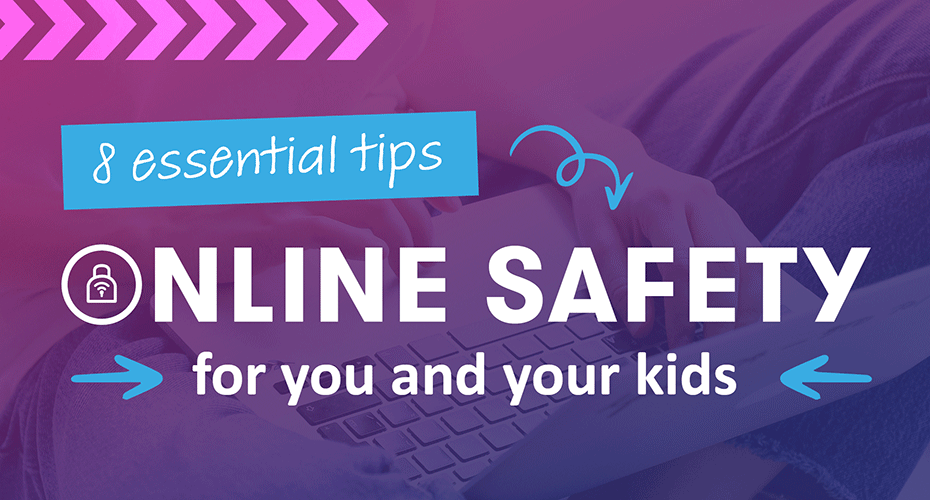8 essential tips to keep you and your kids safe online
We’re all familiar with parental controls, but staying safe online goes beyond just that.
5th September 2024
Whether you’re surfing, shopping, or scrolling through social media, following some key safety practices is essential to protect yourself and your loved ones.
1. Use Strong and Unique Passwords
A simple way to safeguard your online accounts is by using a strong, unique password for each login. A strong password will have a mix of upper-case and lower-case letters, numbers, and special characters.
Do not use guessable information like your birthdate or common words and consider using a password manager such as LastPass. This can generate and store complex passwords for each of your accounts.
2. Keep Software and Devices Updated
Cybercriminals often exploit vulnerabilities in outdated software. Keep your OS, apps, and antivirus up to date with the latest security patches. Remember to enable automatic updates whenever possible. This applies to all devices you use, from smartphones to laptops and even smart home devices!
3. Be Cautious with Links and Attachments
Phishing scams are common and are when attackers try to trick you into clicking on malicious links or opening harmful attachments. Always be wary of unsolicited emails. Before clicking on any link, hover over it to see where it leads. If something seems off, it’s better to err on the side of caution and avoid clicking!
Teach your children to do the same. Emphasise the importance of not trusting every link they see, even if it comes from a familiar source.
4. Enable Two-Factor Authentication (2FA)
Two-factor authentication (2FA) adds an extra layer of security to apps. It requires two forms of verification when logging in, such as a password and a code sent to your phone. Enable 2FA on all accounts that offer it. This is especially true for sensitive accounts like email, banking, and social media.
5. Check and Adjust Privacy Settings
Privacy settings on social media determine who can see your information. Review and adjust these settings to limit what you share and with whom. Restrict your posts to be viewable only by friends rather than the public. Teach children about the importance of keeping personal information private. Help them adjust their privacy settings on social media and gaming platforms. Encourage them to be selective about who they accept as friends or followers online.
6. Teach Safe Online Behaviour
Talk about online dangers with your children. Make them comfortable discussing anything unusual or uncomfortable they might encounter online.
7. Supervise Online Activities
Keep devices in common areas where you can supervise use. Set clear rules about which websites and apps they can access and the amount of time they can spend online.
8. Know The Apps and Platforms Used by Your Kids
Stay informed about the platforms your children use. Popular apps and social media platforms often have age restrictions. It is not uncommon for kids to bypass these. Understand how these platforms work to guide your kids.
Stay informed, keep an eye on the news and trends and know what is happening on your devices and those of your family members to safely get the most out of your online time.
Share this article
Related Articles

Online Activities | Jun 16, 2025
What’s the difference between download and upload speeds (and why does it matter?)

Tech Tips | Jun 2, 2025
Broadband vs. Wi-Fi: What’s the difference (and why should you care)?

Locations | May 17, 2025

